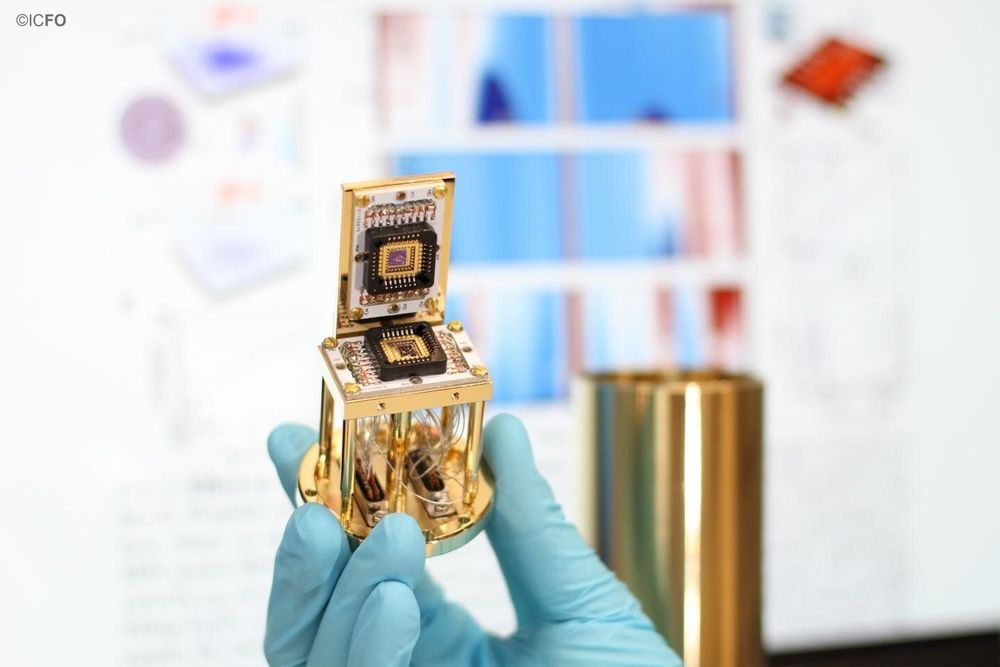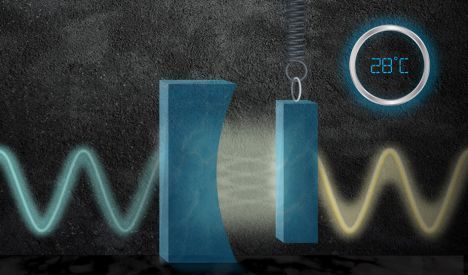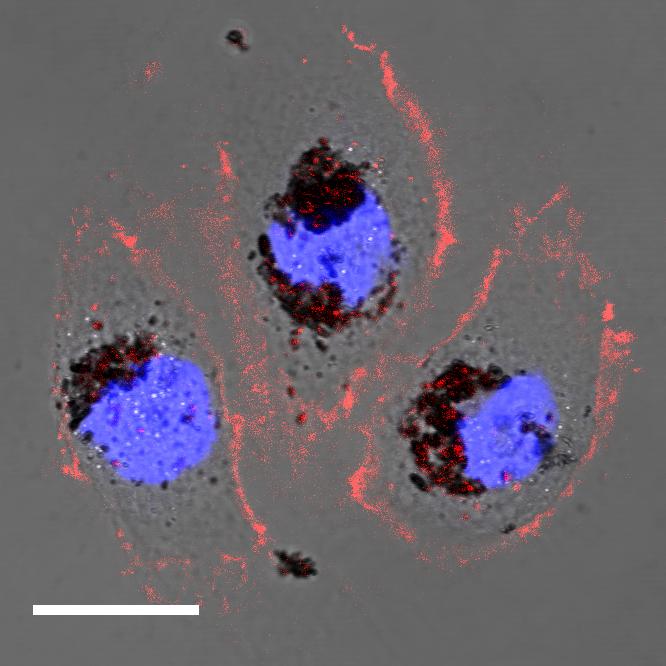Researchers at MIT are working with Ava Robotics to provide a sanitary solution to high foot traffic spaces.



If you stack two layers of graphene one on top of the other, and rotate them at an angle of 1.1º (no more and no less) from each other—the so-called ‘magic-angle,’ experiments have proven that the material can behave like an insulator, where no electrical current can flow, and at the same can also behave like a superconductor, where electrical currents can flow without resistance.
This major finding took place in 2018. Last year, in 2019, while ICFO researchers were improving the quality of the device used to replicate such breakthroughs, they stumbled upon something even bigger and totally unexpected. They were able to observe a zoo of previously unobserved superconducting and correlated states, in addition to an entirely new set of magnetic and topological states, opening a completely new realm of richer physics.
So far, there is no theory that has been able to explain superconductivity in magic angle graphene at the microscopic level. However, this finding has triggered many studies, which are trying to understand and unveil the physics behind all these phenomena that occur in this material. In particular, scientists drew analogies to unconventional high temperature superconductors—the cuprates, which hold the record highest superconducting temperatures, only 2 times lower than room temperature. Their microscopic mechanism of the superconducting phase is still not understood, 30 years after its discovery. However, similarly to magic angle twisted bi-layer graphene (MATBG), it is believed that an insulating phase is responsible for the superconducting phase in proximity to it. Understanding the relationship between the superconducting and insulating phases is at the center of researcher’s interest, and could lead to a big breakthrough in superconductivity research.
The U.S. Army now is pairing space-based sensors with artillery units to allow howitzer and rocket gunners to detect, identify, process, and engage enemy units faster than ever. In tests conducted in Germany, Army artillery units were able to use satellite data for the first time to hit targets beyond the line of sight.
Electric vehicles are still relatively expensive but a trial to help them power the national grid in times of need could see owners being paid. That could make them a lot more attractive.

Physicists at MIT have designed a quantum “light squeezer” that reduces quantum noise in an incoming laser beam by 15 percent. It is the first system of its kind to work at room temperature, making it amenable to a compact, portable setup that may be added to high-precision experiments to improve laser measurements where quantum noise is a limiting factor.
The heart of the new squeezer is a marble-sized optical cavity, housed in a vacuum chamber and containing two mirrors, one of which is smaller than the diameter of a human hair. The larger mirror stands stationary while the other is movable, suspended by a spring-like cantilever.
The shape and makeup of this second “nanomechanical” mirror is the key to the system’s ability to work at room temperature. When a laser beam enters the cavity, it bounces between the two mirrors. The force imparted by the light makes the nanomechanical mirror swing back and forth in a way that allows the researchers to engineer the light exiting the cavity to have special quantum properties.

EVANSTON, Ill.— Packing for outer space? Here’s one thing you won’t want to forget.
Northwestern University researchers have synthesized a new form of melanin enriched with selenium. Called selenomelanin, this new biomaterial shows extraordinary promise as a shield for human tissue against harmful radiation.
“Given the increased interest in space travel, and the general need for lightweight, multifunctional and radioprotective biomaterials, we’ve become excited about the potential of melanin,” said Northwestern’s Nathan Gianneschi, who led the research. “It occurred to our postdoctoral fellow Wei Cao that melanin containing selenium would offer better protection than other forms of melanin. That brought up the intriguing possibility that this as-yet undiscovered melanin may very well exist in nature, being used in this way. So we skipped the discovery part and decided to make it ourselves.”
A mobile autonomous robotic lab assistant developed by researchers from the University of Liverpool is 1,000 times faster than human researchers at performing experiments. It uses LIDAR to navigate the lab and can handle equipment like a human.

NASA is about to begin building its latest spacecraft. Called “Psyche” it will explore a 140 miles/226 kilometers-wide asteroid called “16 Psyche.” Today it’s passed a major milestone.
Why is NASA going to ‘16 Psyche?’
Located in the Solar System’s main asteroid belt between Mars and Jupiter, metal-rich 16 Psyche is thought to be the exposed metallic iron, nickel and gold core of a protoplanet. Most asteroids are rocky or icy.

Team members at Adobe have built a new way to use artificial intelligence to automatically personalize a blog for different visitors.
This tool was built as part of the Adobe Sneaks program, where employees can create demos to show off new ideas, which are then showcased (virtually, this year) at the Adobe Summit. While the Sneaks start out as demos, Adobe Experience Cloud Senior Director Steve Hammond told me that 60% of Sneaks make it into a live product.
Hyman Chung, a senior product manager for Adobe Experience Cloud, said that this Sneak was designed for content creators and content marketers who are probably seeing more traffic during the coronavirus pandemic (Adobe says that in April, its own blog saw a 30% month-over-month increase), and who may be looking for ways to increase reader engagement while doing less work.
